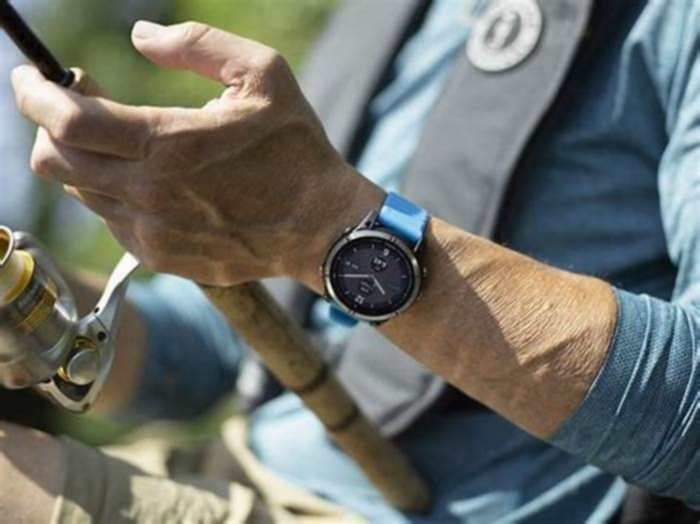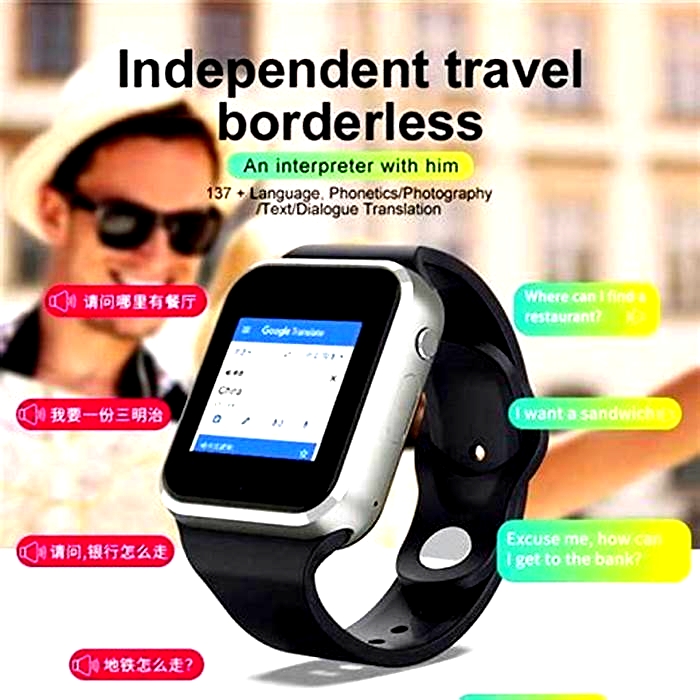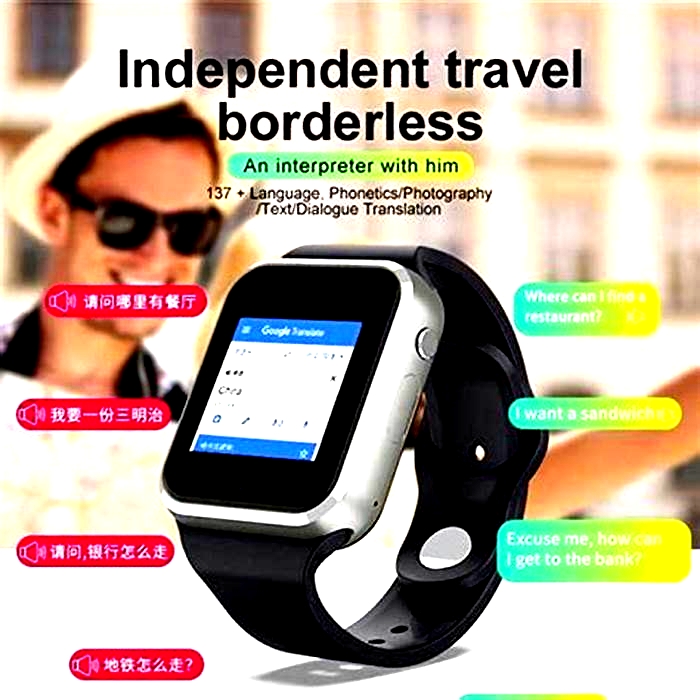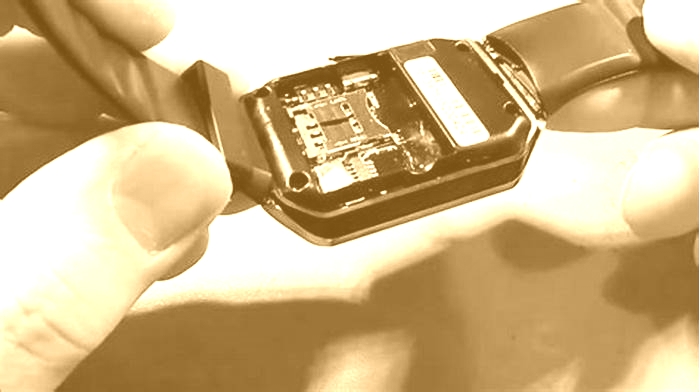How Smartwatches Can Help You Navigate While Traveling Abroad

5 ways to embrace cultural differences while traveling
Check out my tips on how to prepare yourself for the cultural differences you may experience while traveling abroad. You can make the most of this amazing experience!
Traveling to a foreign country is one of life's greatest privileges. As humans, we are lucky enough to have the ability to cross borders and experience different cultures for very little time and money.
To develop a more open-minded and mature sense of the world and its billions of people, traveling is essential.
Whether you are just visiting a foreign land or participating in a work exchange where you get to live and work in a particular area, cultural differences can have a huge influence on your time there.
It could be little things, like what time dinner is served or what is eaten for breakfast.
It could also be big things, like how women are treated or how seriously religion is taken.
It's important to be expectant of cultural differences before-hand, so you don't experience extreme culture shock when you arrive at your destination.
Here are five tips for making the most of the local culture, and seeing cultural differences as a positive rather than a negative.

5 ways to embrace cultural differences in your trip
1. Study the culture of your destination beforehand
Doing a little research on the country you're going to is a great way to prepare yourself for the cultural differences you'll experience while traveling.
Just knowing simple facts about the country and how daily life is lived can help you integrate better into the society.
Look up useful, everyday tips, like how people greet each other, whether you should leave tips or not when eating out, and whether shoes should be removed in homes. These may seem like trivial things, but some cultures take these customs very seriously.
These may seem like trivial things, but some cultures take these customs very seriously. For example:
- Many countries in Asia find it disrespectful if you don't remove your shoes before entering a building.
- Countries like the USAand Canada find it disrespectful if you don't tip your waiters and bartenders.
- Mediterranean and mostLatin American countries consider a close embrace and kiss or two to be a normal greeting, whereas greetings in other countries may not involve touching at all.
Brushing up on these daily occurrences in a new country can make your first few days there go a bit more smoothly. Do your research and make a mental list of cultural differences to expect.
If you do no research at all, you risk being caught off guard, which can not only stress you out but it may offend some of the locals.
To make a good impression on others, and feel confident in yourself, try to study the local culture before you jump on the plane.
2. Converse with someone who has traveled there before
Take your preparation for travel a step further with direct conversation.
A great way to get an authentic feel for the culture is to get in contact with someone who has visited there before.
Browse through travel blogs, look up fun facts and photos, read books, or actually, have a conversation with someone who has spent time in your destination.
If you're planning on doing a work exchange, on the Worldpackers website you can actually send messages to travel experts and have a full conversation about the Worldpackers travel experience.
Talking to someone who traveled there, rather than someone who lives there, can be helpful because you'll be having a similar experience.
Fellow travelers can give you give you an idea of the culture from a foreigner's perspective, and give you advice on what to expect and how to handle it.
They can also give you specific tips about cool stuff to do in the area, and share some of their own stories with you to give you a sense of comfort about venturing off to a foreign land.

3. Respect the local culture
After researching examples of cultural differences between countries and learning about the local customs and traditions of your travel destination, you must take your understanding of cultural differences to the next level.
Don't just learn about all these cultural insights and then fail to engage with them and respect them.
There is a term in cultural studies called "egocentrism", which means viewing your own culture as superior to others.While traveling, you must avoid being egocentric at all costs.
It's pivotal to put your ego aside and understand that no culture is better or worse than another. Appreciate what makes the local culture different from your own, and understand that the locals there live that way for a reason.
Usually, the locals are happy and content with their way of life, so just observe and respect that rather than try to push your own ways on them.
It's important to think of yourself as a visitor while traveling. When you venture to a new land, they already have their own cherished customs in place, and that is how life thrives there.
Your own culture and lifestyle may be different from how these people live, but you must have the mindset that travel is a pure form of education, and you are there to learn.
Absorb their way of life, try to adapt, and always try to see the positive side of things. Remember than traveling is a constant cultural exchange.
4. Maintain good communication
An important way to show your respect for the culture is to communicate clearly and carefully with the locals.
This means approaching people in a friendly, non-threatening and non-judgmental way.
Some people are hesitant to open up to foreigners, so you must show that you are trustworthy.Having a positive attitude, always wearing a smile, and being patient will help your communication with the locals immensely.
Even if you prepare yourself and respect the culture, sometimes things can go wrongand you may feel stressed, upset or angry.
If your bus is late, or if someone tries to rip you off when shopping at a market, or if you're lost and no one can give you the right directions, try to avoid acting irrationally in a moment of panic.
These things always happen, whether you are at home or abroad, and you shouldn't let it detract from your incredible travel experience.
Speak to others slowly and clearly, and remember that not everyone speaks English. If you don't speak the language, use gestures and hand signals as best as you can.
In your pre-trip preparation, it may be helpful to try and learn some words in the local language or buy a dictionary to take with you.
If you are choosing to work in a different country, this tip of good communication always applies to your bosses, co-workers, or host families.
The people you live and work with are willing to accept you into their lives and help you have a wonderful experience, so always maintain consistent communication and positivity with them.
This will result in a better relationship and a more enjoyable time living abroad.

5. Have empathy
To take this positivity with the locals further, try to have a sense of empathy with them. This means being able to put yourself in their shoes and relate to their emotions.
You'll find that no matter where you are in the world, people are all the same underneath the surface. Regardless of skin color, clothing, religion, occupation, social class, sexual orientation, or any other trait, all people feel the same emotions and want to be happy in life.
Recognizing this common connection between people can help you relate to them and feel a sense of community even if you're thousands of miles from home. This is also one of the many ways that traveling makes you more open-minded.
Sharing a smile, a laugh, a hug, a meal, a dance, or any human experience with others halfway across the world is an incredibly beautiful moment.
The bonds that people can create even if they look completely different and live differently can be so strong, and this is why people love traveling.
With this sense of community, you'll have a more enriching experience while traveling or working and living abroad.
How to Use Your Phone Internationally
Stay Connected Anywhere in the World
In todays interconnected world, staying connected while traveling internationally is crucial. Whether its for business or leisure, having access to your phone can help you navigate new places, stay in touch with loved ones, and seek assistance in emergencies. However, using your phone internationally can be challenging due to unfamiliar networks, high roaming charges, and compatibility issues. In this guide, we provide valuable insights on how to use your phone internationally and stay connected hassle-free.
Stay connected with the best Travel eSIM


Get a local SIM card
What is a SIM card?
A SIM card, or Subscriber Identity Module, is a small chip that allows your phone to connect to a mobile network. It contains important information about your phone number and network provider. When traveling internationally, using a local SIM card can offer numerous advantages.
Benefits of Using a Local SIM
- Local rates for calls, texts, and data: By using a local SIM card, you can avoid exorbitant international roaming charges and enjoy affordable rates for local calls, texts, and data usage.
- Having a local phone number for reservations or emergencies: Having a local number while traveling makes it easier to communicate with local businesses, make reservations at hotels or restaurants, and reach out for emergency assistance.
- Avoiding surprise international roaming charges: International roaming charges can quickly add up to your phone bill. With a local SIM card, you can eliminate these unexpected charges and have better control over your expenses.
Steps to Get a Local SIM
- Unlock Your Phone: Ensure that your phone is unlocked for international use. Contact your current mobile service provider to check if your phone is locked and request an unlock code if necessary. Unlocking your phone allows you to use SIM cards from different network providers.
- Buying a Local SIM: Local SIM cards are readily available at airports, local stores, and online platforms. Depending on your destination, research the best places to purchase a local SIM card and compare prices and plans. Some popular options include local mobile service providers and reputable retailers.
- Activation and Top-Ups: After purchasing a local SIM card, follow the provided instructions to activate it. This usually involves inserting the SIM card into your phone and following the prompts on the device. Additionally, you can easily add more credit or data to your SIM card by purchasing top-up vouchers or using online platforms.
Potential Drawbacks
While using a local SIM card offers several advantages, there are a few potential drawbacks:
- Switching out your original SIM: Swapping out your original SIM card means you wont receive calls or messages on your regular number. Consider informing your contacts about your temporary number or using call-forwarding services to minimize the chances of missing important communications.
- Compatibility issues: Some phones may not be compatible with certain network providers or frequencies. Before purchasing a local SIM card, ensure that your phone supports the network bands used in the country youre visiting.
Use an eSIM card
What is an eSIM?
An eSIM, or embedded SIM, is a digital SIM card that is built into compatible devices such as smartphones, tablets, or smartwatches. Unlike traditional physical SIM cards, eSIMs offer greater flexibility and convenience.
Never used an eSIM before? Check out our in-depth guide: How Does an eSIM Work?
Advantages Over Traditional SIM Cards
- No need to swap physical cards: With an eSIM, there is no need to physically switch out SIM cards when traveling to different countries. You can have multiple plans or numbers on a single device, making it easier to manage and switch between networks.
- Ability to have multiple plans or numbers on one device: eSIMs allow you to have multiple plans or numbers on one device, making it ideal for travelers who frequently visit different countries or need separate lines for business and personal use.
- Quick and easy switching between plans: With just a few taps on your device, you can switch between different plans and activate new services. This flexibility ensures that you always have the best connectivity options wherever you go.
How to Activate an eSIM
- Checking phone compatibility: Not all devices support eSIM functionality. Check if your phone is compatible with eSIM technology by referring to the manufacturers website or contacting your mobile service provider.
- Scanning or entering the details provided by the eSIM provider: Once you have determined that your device supports eSIM, follow the instructions provided by the eSIM provider to activate the eSIM. This usually involves scanning a QR code or manually entering the details provided.
Popular eSIM Providers for Travelers
Maya Mobile is an eSIM provider that offers excellent coverage in 194 countries worldwide. They provide reliable and convenient eSIM solutions for travelers, ensuring seamless connectivity wherever your journey takes you.
How do I avoid phone charges when traveling internationally?
- Turn Off Data Roaming: To prevent accidental charges, turn off data roaming on your device before traveling. This ensures that your phone doesnt connect to expensive international networks. Go to your phone settings and disable data roaming or set it to only connect to Wi-Fi networks.
- Use Wi-Fi Whenever Possible: Take advantage of free Wi-Fi available in hotels, cafes, and public spaces. However, be cautious when connecting to public Wi-Fi networks as they may not be secure. Avoid accessing sensitive information or making financial transactions while connected to public Wi-Fi.
- Messaging Apps Over Traditional Texting: Instead of using SMS, use messaging apps like WhatsApp, Telegram, or Viber that use data or Wi-Fi for communication. This way, you can send texts, make calls, and share media without incurring SMS fees.
- Voice Over IP (VoIP) Calls: Make international calls without incurring charges by utilizing apps like Skype or FaceTime that use internet connectivity instead of traditional phone networks. These apps allow you to make voice and video calls to anyone with the same app installed.
- Setting Up Travel Modes with Your Carrier: Check with your mobile service provider if they offer special international packages or modes that can help you avoid unexpected charges. These packages often include discounted rates for calls, texts, and data while youre abroad.
- Check for Hidden Fees: Before traveling, carefully review the terms and conditions of your mobile plan to understand potential hidden fees or restrictions. Familiarize yourself with any fair usage policies or limitations, especially regarding data usage abroad.
- Offline Maps and Downloads: Download offline maps and translation apps before traveling. These apps allow you to access maps, translations, and other useful features without constant data access. This way, you can navigate new locations or communicate without relying on expensive data connections.
Ultimate Travel Hack: Wi-Fi Calling
Wi-Fi Calling allows you to make phone calls, send texts, and use data services over a Wi-Fi network but heres the best part! With Wi-Fi Calling, you can use your own SIM card everywhere in the world without having to deal with those pesky roaming feeslike magic.
For the full run down, see our complete guide: What is WiFi Calling?
Conclusion
By following these tips, you can ensure seamless phone usage while traveling internationally. Whether you choose to get a local SIM card or opt for an eSIM, staying connected no longer has to be a challenge. Plan ahead, compare options, and consider your specific needs to make the most of your phone while exploring the world. Remember to balance connectivity with moments of digital detachment to fully immerse yourself in the travel experience and create lasting memories.
Post Views: 790









